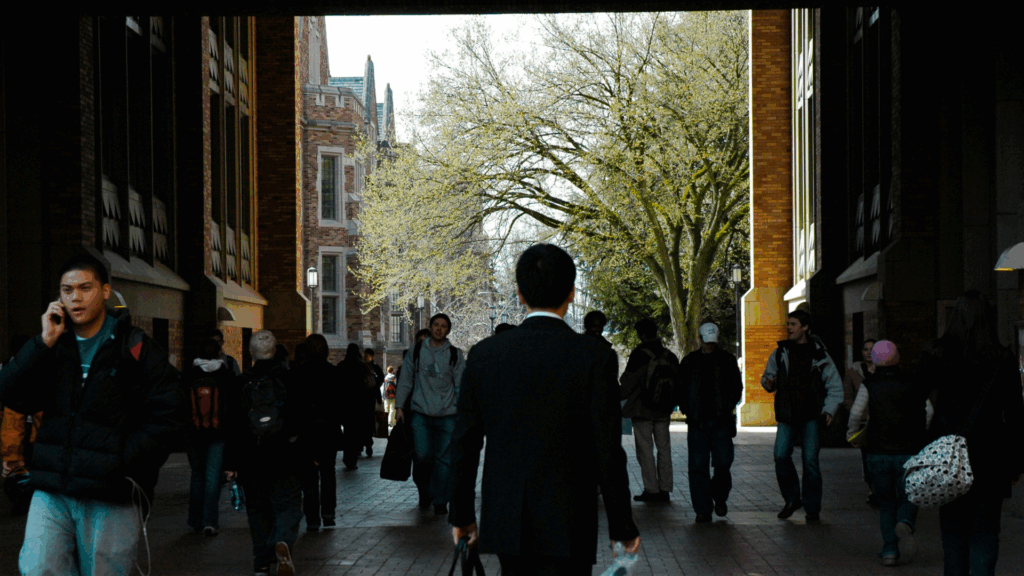The Church has always taught the need for detachment basing itself on the Gospel. Our Lord was born in a poor stable in Bethlehem, and on Calvary he died stripped of everything with only the wood of the Cross. We are told that during his public life, he had nowhere to lay his head.
In addition, he tells us: Do not lay up for yourselves treasures on earth where moth and rust consume. Lay up a treasure in heaven. Where our treasure is there will our heart be.
Our Lord gives us the example of the man who decided to tear down his barns and build bigger ones. Fool, this night they will demand thy life of thee. What will barns full of goods be worth then?
The virtue of poverty consists in living with our heart in God, and therefore detached from material things. Free to love: this is the meaning of the spirit of poverty, austerity and detachment. We want to keep our heart free to love God.
Security is a basic human need. We should look for our security in God. But God has competitors in our quest for a security blanket. We tend to rely rather on our skills, our friends, or wealth, politics, education.
It is foolish to look for security in things. They can never satisfy the deepest longings of the human heart. In a consumer society where we want to look good, we buy things we don’t need with money we don’t have to impress people we don’t like
Where do we seek security? In things or in God? The first commandment tells us: Thou shalt not have false gods before me. When we look for security in anything except God we make an idol of that thing. We can look forward to things. But we should not harbor great desires for things.
We should be just as happy whether we succeed in that course, attend the party, watch that game on TV, or whatever else we fancy on doing.
Some are called by God to give up everything. This applies to the Apostles, to the rich young man who Christ told: Go, sell all you have and give it to the poor and come follow me. This applies also to members of religious orders who are called to renounce the world.
But Our Lord does not address that call to everyone. For example, he did not ask it of Lazarus, Martha, Mary, Nicodemus, Zacchaeus or Joseph of Arimathea. But to all he does say: Blessed are the poor in spirit for theirs is the kingdom of heaven.
So, everyone is called to be detached from material goods, from things. But in addition, we are also called to be detached from all temporal goods such as success, reputation, popularity, our time, our comfort, our health, our opinions, etc.
It is above all an attitude. The source of our happiness is not material things. We must not set our heart on them. This does not mean that material things are evil or bad. On the contrary, God made the world for us, out of love. He saw that it was good. But we are to view material things as means for us to grow in holiness, not as an end in themselves.
We are called to love people and use things. But we all too often end up loving things and using people. If we see material things as ends, we become attached to them. So we should ask ourselves this question: Do material things lead me to God or draw me away from Him? Do they enslave me? You are master of what you give up and the slave of what you are not willing to give up.
Our Lord tells us that we cannot serve two masters. We cannot love God and mammon. We can’t serve God if our ambitions are purely material. We are told to seek the things that are above. Where is our heart?
So, material things are never an end in themselves. We should not set our heart on them. St Augustine says: Whoever seeks God while determined to hold on to what he likes, may seek him day and night but will never find him.
So, material things are a means to an end. We use them to seek holiness and do apostolate. We need to keep our priorities straight. We should notplace our hope in any created thing. We should not look for our happiness in any created thing. If we are not detached, progress in the spiritual life is not possible. If we love the world in an inordinate way, we cannot love God.
The spirit of detachment helps us focus on what is truly important, to put our heart into the important things, to put love into them. It leads to peace of mind, serenity.
In one of his addresses to young people, Pope John Paul II said the following:
Many and enticing are the voices that call out to you from all sides: Many of these voices speak to you of a joy that can be had with money, with success, with power. Mostly they propose a joy that comes from the superficial and fleeting pleasure of the senses.
People are made for happiness. Rightly then you thirst for happiness. Christ has the answer to this desire of yours…. Only Jesus speaks the unchanging message that responds to the deepest longings of the human heart.
And in his inaugural address after his election Pope Benedict XVI said the following:
At this point, my mind goes back to 22 October 1978, when Pope John Paul II began his ministry here in Saint Peter’s Square. His words on that occasion constantly echo in my ears: “Do not be afraid! Open wide the doors for Christ!.” The Pope was also speaking to everyone, especially the young. Are we not perhaps all afraid in some way? If we let Christ enter fully into our lives, if we open ourselves totally to him, are we not afraid that He might take something away from us? Are we not perhaps afraid to give up something significant, something unique, something that makes life so beautiful? Do we not then risk ending up diminished and deprived of our freedom?
And once again the Pope said: No! If we let Christ into our lives, we lose nothing, nothing, absolutely nothing of what makes life free, beautiful and great. No! Only in this friendship are the doors of life opened wide. Only in this friendship is the great potential of human existence truly revealed. Only in this friendship do we experience beauty and liberation. And so, today, with great strength and great conviction, on the basis of long personal experience of life, I say to you, dear young people: Do not be afraid of Christ! He takes nothing away, and he gives you everything. When we give ourselves to him, we receive a hundredfold in return. Yes, open, open wide the doors to Christ – and you will find true life.
We may think we are detached because we do not have much. But we can be attached to things without realizing it.
I can be attached to my preferences. My chair, my schedule, my job, my way of doing things, my time for sports, my time to read newspaper, my time to watch YouTube videos or Netflix or to go through Facebook, my little pleasures. We can be attached to peace and quiet. How do we react when we can’t have it?
We live in the heart of civil society. We need material things (computer, smartphone, sports equipment, books, clothes, money, etc.). This makes detachment challenging.
Yahweh knew that when the Chosen People entered the Promised Land they would become more wealthy and turn away from Him: I am bringing them into a land flowing with milk and honey. They will grow rich and eat to their heart’s content and then turn to other gods and serve them, despising me and breaking my Covenant. Deut. 31: 20. We must be on our guard not to fall into this trap.
In the Letter to the Hebrews we read: But here we have no permanent city, but seek the city that is to come. We are wayfarers. So for us, temporal goods can have only a very relative value. They are passing. If we learned that we only had twenty-four hours to live, think how little value we would place on our temporal goods.
But we don’t shun material things. We have and use them like everyone else. But we should seek to sanctify our use of them.
God created the world and saw that it was good. The material universe is good. The Church has always taught this. It has always Condemned dualist heresies that saw the material world as something evil.
God created the good things of the world to show his love for us, to provide for our needs and for our enjoyment. So we should know how to enjoy the good things of the world with moderation, detachment, temperance. We are not puritans. Enjoyment of good things here is a pale foretaste of the happiness of heaven. Our Lord attended feasts. He ate and drank at feasts. He wore a seamless tunic.
Detachment does not mean neglecting decorum. Simon the Pharisee failed to show our Lord good manners and Jesus reprimanded him for this. At Ernescliff we try to keep the house well decorated, in good taste, without much money. We try to take care of things well and to keep the house clean.
Some religious orders have different spirit. They show their detachment in a public way. They wear a habit, they live in cell, their monastery is austerely decorated. That is their spirit. But the ordinary layman in the middle of the world is not called to live like that.
Detachment does not mean wasting: Our Lord had the Apostles pick up the 12 baskets of bread crumbs after the multiplication of the loaves. It does not mean being a cheapskate or miser.
If we are going to re-christianize society we must give testimony of Christian detachmentand still be normal. Show that it is possible. Detachment should come out in our conduct. If we are always asking how much. If we always talking about food and drink, or about things we would like to possess, it shows that we are attached.
We are surely attached to some things: our computer; our career; our reputation; our popularity; professional success, our comfort, our time, etc. If we don’t break out of our comfort zone, we don’t grow. We should stop and think, is there anything that would constitute a tragedy for me if I lost it?
Living detachment is more difficult in a rich country like ours where the thrust of the culture is the pursuit of pleasure and the first commandment is Thou shalt not suffer. We live in a culture of immediate gratification. We are told that we can have it all and have it now. With a MasterCard we can get the things that really count. We are always tempted to fall into consumerism. If it stops working, throw it away and get a new one. Our culture values and emphasizes having and doing vs. being. This approach degrades and enslaves man.
We should not create needs for ourselves. We do not always need the latest gadget. We should only have what we need to lead a simple and sober life. We should live sobriety and not surround ourselves with non-necessities. We should avoid impulse spending. We should not acquire goods to look good and beware of vanity, caprice.
One way to know if we are detached is whether we complain. If we catch a cold, if there is no coffee at breakfast; no hot water for my shower; we are out of my favorite cereal; there is a power failure; my computer breaks down or my laptop is stolen.
We should embrace these little crosses. They help us to grow in virtue and love of God. It is the divine sculptor carving the image of Christ in us. We should be grateful and be just as happy.
We should be detached from good health. Of course, we take care of our health. But we accept sickness as a blessing from God. Some people obsess about their health.
We should be detached from food and drink, living temperance and sobriety. Understand the difference between the good and the appropriate. Something may be very good (like ice cream cake) but not appropriate for someone on a diet. How do we act when something is free?
We should be detached from our plans in order to live service towards others. We should be willing to put our own plans aside in order to do something that the others prefer.
We should be detached from our reputation and popularity. Sometimes the defense of the truth can call down ridicule upon us.
We should be detached from our time. It is irredeemable. In the parable of the Talents, the lazy servant hid his talent in the ground instead of making it bear fruit. And he was severely punished.
We should be detached from our opinions. We think that Michael Jordan is the GOAT and we can’t understand why some people don’t see it that way.
We should be detached from our routine. How do I react when it is upset?
Where in my life are my attachments getting in the way of God’s plan? Our task is to look at our lives and realize what God is asking us to drop to make a space for what he wants to do for us. His plan is always better than ours. But we have to be willing to let him work.
Questions to consider in our prayer:
Could I cut back on some unnecessary expenses? Do I try to give alms to those in need when I am able to?
Do I seek security in material goods (clothes, electronic devices, expensive plans…), and in the image others have of me? Or do I find security in my relationship with God and in sincere friendships? Am I overly concerned about what others think of me?
Do I try to make the things I use last (clothes, cell phone…,) or do I need to change them frequently? Do I always think I need the latest gadgets my friends may have?
Am I trying to make two or three small sacrifices every day to help me realize what is truly necessary in my life (in the use of a cell phone, videos and television, snacks …)?
Do I show myself to others as I really am? Am I happy when others point out my defects in a charitable way? When was the last time I asked someone for forgiveness? Do I often ask others for advice?
Article by Anthony Schratz
Photo by Максим Степаненко on Unsplash


